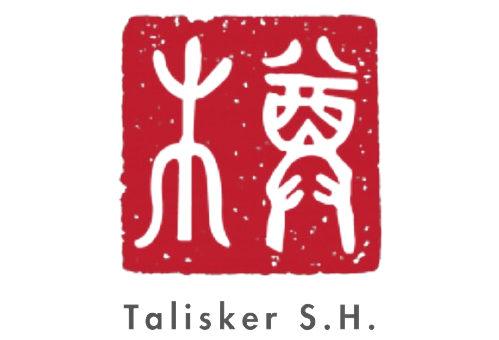Written by Upton Sinclair – Published in 1906 – 413 Pages
In the midst of a global pandemic and with winter closing in, I chose to cheer myself up with ‘The Jungle’ by Upton Sinclair. Sinclair took me to Packingtown, Chicago’s meatpacking district at the turn of the last century.
Packingtown is, as it so happens, hell.
The Jungle was described by young-adult novelist John Green as the first book to make him vomit. While Sinclair’s tale didn’t on any occasion make me fetch up my dinner, Green’s review is fitting. The steady stream of injustices endured by its characters compete with descriptions of industrial slaughterhouses in a contest so vile it turned even my hardy stomach off bacon (at least for a while).
Within the opening chapters, ungodly numbers of cattle, swine, and sheep are herded into warehouses where workers stun, slaughter, then strip creature after creature of – as the Packingtown adage goes – “everything but the squeal.”
This is the home of Jurgis Rudkus. Jurgis (pronounced ‘yoorgis’) is a heavy-browed hulking Lithuanian. His pursuit of the American dream has taken him to the Chicago stockyards, family in tow. Jurgis is noble and unshakeable, if not a little naïve. “Do not worry, I will work harder” repeats Jurgis, believing brawny arms are enough to protect his loved ones.
In reading, you’re introduced to industrialised death. The killing floor is brought to life as Jurgis wades from carcass to carcass in his initial role as a ‘sweeper’. Thanks to Sinclair’s prose, you practically smell it. Soon, you realise livestock aren’t the only living creatures being butchered in Packingtown.
In this vast machine, human beings are expendable parts to be worked until spent. Men, women, and children work for pittance wages in appalling conditions from before dawn to well into the evening. In winter, the sub-arctic cold creeps into their shacks like death personified, snatching away the young and weak. Summer is hardly better. Workers broil in slaughterhouses that draw plagues of rats and flies.
Year-round, Jurgis’s family are beset with disease and conmen. They’re tempted by drink and haunted by unemployment. Jurgis’s optimism withers, so too does his body. A violinist’s fingers are eaten away one by one by de-boning acid. A boy falls asleep and is locked inside a factory overnight, whereupon he is eaten alive by rats. Did I mention this book was cheerful?
You’re probably asking yourself “why on earth should I read this god-awful story?” I wouldn’t blame you. Surely, given the state of the world as is, you’d want something a little more … optimistic?
Yet, here’s my case for why you should read The Jungle. The Jungle will remind you of some of life’s fundamental truths. For instance, Jurgis and family lay plans. They plan to pay their mortgage; they plan to save for winter; they plan to marry. Through accident, injury, or other unfair misfortune, these plans fall apart. There is no trace of an absolute certainty anywhere in their world, and you could probably say the same for yours.
Needless to say, your plans too, however well laid, have probably gone astray. Have you been saving for an exchange? Have you been looking forward to a gig? To a job? To seeing that overseas friend or family member you hadn’t seen in forever? You’d worked hard hadn’t you? You’d prepared as best you could, right?
Yet, someone ate a bat in China (or was it a pangolin?) and now, well, you’re here. Understanding the fragility of life reveals its value. Plans, no matter how well laid, are figments of the imagination, subject to be dashed should the universe will it. As it is, the only realm in which we have any real agency is the here and now. The Jungle reminded me of this fact.
Here is my second reason for why you should read The Jungle: it’s a reminder of the power you possess in that here and now. Upon the novel’s release, public outcry as a result of Sinclair’s vivid and appalling account caused foreign sales of American meat to fall by half.
Then, as now, America was a land of capitalists who used new technologies and processes to amass vast fortunes. They were a lucky, seemingly untouchable few. Nevertheless, 410 pages composed by a penniless author drove them to do a very rare thing: they begged congress to introduce legislation that would restrict their practices and thus renew public confidence in their product.
The powers shaping human history seem tectonic in nature. Slow moving and unstoppable, influenced only by a privileged few. Yet, in 1906, Sinclair told a story of despair and poverty, of oppression and
injustice; of the appalling odds facing those who struggled for a life that was promised. The Jungle took people into the stinking bowels of capitalism and showed them where the magic happened. As a result, real change occurred.
The Jungle teaches us that the universe is capricious and unfair. But it also teaches us that, despite this, you are far from a kite in a hurricane. So, join Jurgis Rudkus and his family in Packingtown. Sink into the muddy streets and accompany these poor souls to the factory floor; their freezing shacks; their dingy saloons. Get lost in The Jungle. It may be unpleasant; it may make you feel sick and hurt. But, once you emerge from the undergrowth, it will be worth it.
Favourite lines
“In Russia one thought of the government as an affliction like the lightning and the hail”
“They were trying to save their souls – and who but a fool could fail to see that all that was the matter with their souls was that they had not been able to get a decent existence for their bodies?”
(Describing comrades in prison) “It was like breakers upon a beach; there was new water, but the wave looked just the same.”
